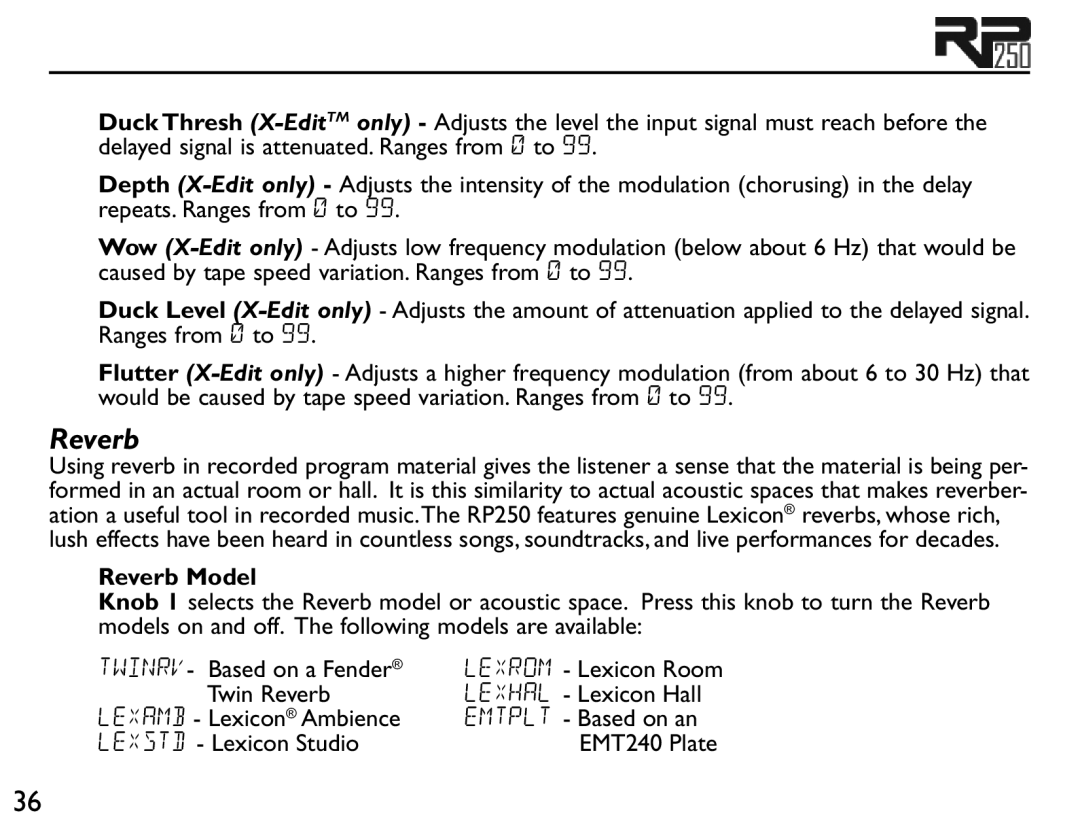Duck Thresh
Depth
Wow
Duck Level
Flutter
Reverb
Using reverb in recorded program material gives the listener a sense that the material is being per- formed in an actual room or hall. It is this similarity to actual acoustic spaces that makes reverber- ation a useful tool in recorded music.The RP250 features genuine Lexicon® reverbs, whose rich, lush effects have been heard in countless songs, soundtracks, and live performances for decades.
Reverb Model
Knob 1 selects the Reverb model or acoustic space. Press this knob to turn the Reverb models on and off. The following models are available:
twinrv- Based on a Fender® | lexrom - Lexicon Room |
Twin Reverb | lexhal - Lexicon Hall |
lexamb - Lexicon® Ambience | emtplt - Based on an |
lexstd - Lexicon Studio | EMT240 Plate |
36
